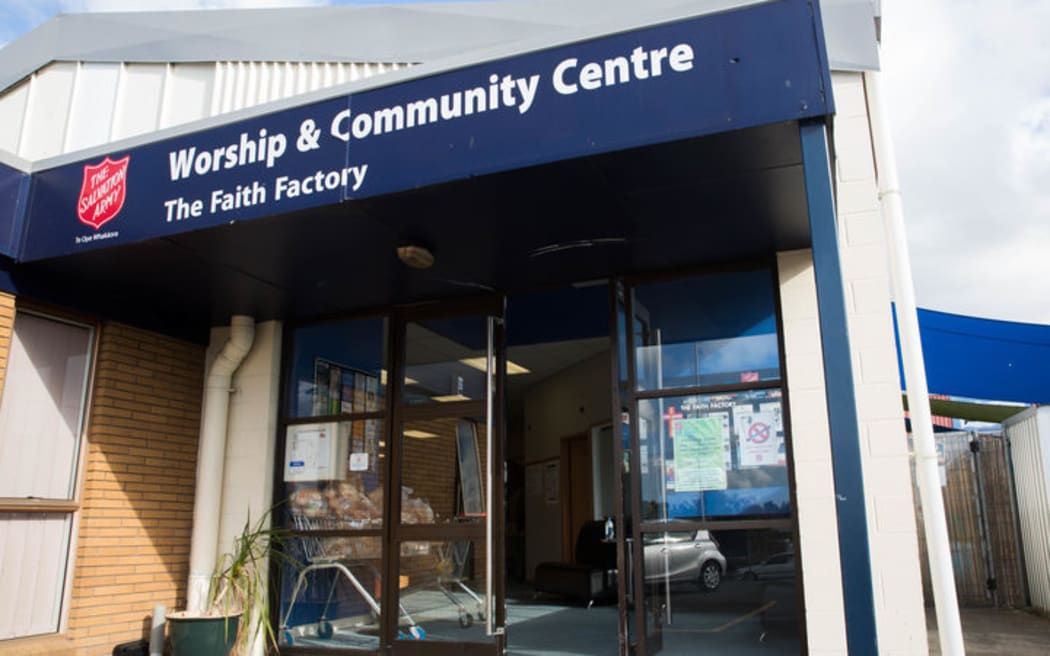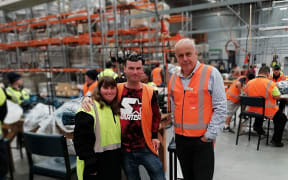The Salvation Army is warning of an "emerging underclass" of people who have suddenly found themselves in hardship because of Covid-19.

Photo: RNZ / Cole Eastham-Farrelly
It said many of the people who have needed its help over the last few weeks have never used its services before.
Salvation Army analyst Ronji Tanielu said they were particularly worried about this new group of people, who have lost their jobs, had their hours cut, or were receiving the wage subsidy.
They were struggling to pay the bills, cover their housing costs and put food on the table.
"This new group who have never used foodbanks before, who have never gotten government support, this is the group we are concerned about," Tanielu said.
*See all RNZ coverage of Covid-19
"Because now, when they are facing financial hardship and vulnerability, they put stress on government services and also the social service sector."
And those social services would need more help from the government to meet the growing need out there.
Like many other others, the Salvation Army has also seen a massive spike in the number of food parcels it is handing out.
In just one week during the lockdown, it handed out close to 6000 food parcels - the same amount it would usually hand out in a month.
But social policy director Ian Hutson warned that the country cannot rely, as it has in the past, on community-based foodbanks to meet this new demand.
He said the Covid-19 pandemic was an opportunity to break the cycle of food poverty and create a society where no-one goes hungry.
The already dire need for housing could also be made worse by Covid-19, Hutson said, as people unable to pay their rent or mortgage could soon add to social housing waitlists.
He urged the government to make a multi-billion dollar investment in housing to create new jobs and address the housing crisis.







